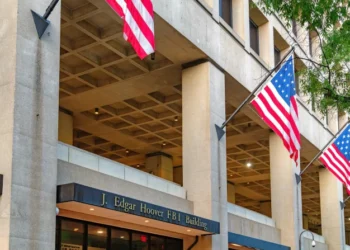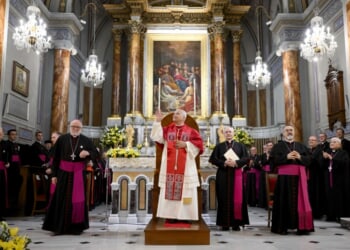When you hold a lunch or a dinner, do not invite your friends or your brothers or sisters or your relatives or your wealthy neighbors. (Lk. 14:8)
What a perplexing statement spoken by Jesus to the leading Pharisees of His time—one that would have been perplexing to anyone hearing these words.
We understand the snobbish exclusivity of certain “members only” clubs, in which the invitation list is based on the size of wallets and not on the moral character or integrity of the guests. But for us “regular” people, we too have our own reasons for deciding whom to include on our invitation lists. We do not invite strangers to our children’s birthday parties, for example. Our gatherings are made up of cherished family and friends. But Jesus tells us not to invite them? How are we to understand this lesson?
Of course, at the time of Jesus’ teaching, He is addressing His words specifically to the religious leaders. In terms of who they are to invite into their homes, Jesus is foreshadowing a new kind of home in which everyone is welcome: the Church of Jesus Christ.
Jesus is not telling them not to be friends with each other. But He is telling them that as religious leaders, their job is to bring in “the poor, the crippled, the lame, the blind” who hitherto have had no place in the community. Their job is to show ones such as these the face of the merciful God who loves them! These Pharisees had been treating the marginalized as outcasts—like “sheep without a shepherd” (Mt. 9:36). Jesus came to rectify their thinking and their behavior. They had failed in their duty to serve the Lord.
Well, not all of us are religious leaders; yet, the Catechism of the Catholic Church tells us that as Christians, “the baptized serve as priests through their sacrificial efforts to bring people to God” (CCC 1241). So it is no less our job to bring others to the Lord than it is that of our priests and bishops. It just means something a little different for us than it does for them.
What does inviting “the poor, the crippled, the lame, the blind” look like for us? The truth is, many of us do not personally know enough poor, crippled, lame, and blind people to fill an entire banquet hall, so attempting to host an extravagant dinner for ones such as these may be unrealistic. But in our case, Jesus is not necessarily asking us to literally include just this subset of people. To find out who He does mean, let’s look at the rest of His statement to the Pharisees:
Blessed indeed will you be because of their inability to repay you. (Lk. 14:14)
Jesus wants us including and tending to the people who are unable to “repay” us. Who could that be, other than the literal poor? If our motivation for inviting someone who is “poor” or “crippled” is that it makes us feel good to be generous or charitable, then these are not the people to whom Jesus refers.
Of course, there is nothing wrong with feeling good when we do good things; it’s just that those good feelings are the reward. What could be better in this life than feeling good? So if Jesus tells us to include a group of excluded people, but not the ones who make us feel good, who does that leave? The ones who do not make us feel good. The ones who bother us, offend us, make us anxious or otherwise get on our nerves. “Invite these ones,” Jesus says.
Why must we do such a thing? It is these souls, and these souls alone, who could never repay us, even if they were to invite us to their most elegant and lavish dinner party. Why? Because we do not want to come. In their presence is the one place we do not want to be.
But how do we bring ourselves to invite the person who gets on our every last nerve? Around ones such as this we are tempted to overreact to their offensive comments, engage in heated debates over petty disagreements, lose our patience, commit sins against charity. Why would Jesus ever want us to be tempted beyond our strength?
Of course, He would not. When Jesus asks us to invite those who cannot “repay” us, He is not speaking here of a literal invitation to a literal banquet. He is speaking of inviting ones such as these into our hearts. The truth is, it is not always a good idea to be around people who cause us to lose our patience—and our peace. When it comes to certain people, we might need some distance or breaks between visits…so that we can love them more.
But how can we love them more from a distance? Because while our act of love may include things like hosting a dinner banquet for them, there are other ways, sometimes more appropriate to the relationship, in which we can include them in our hearts. To better understand these other ways, let’s look at what Jesus has to say to St. Faustina about the matter:
I am giving you three ways of exercising mercy toward your neighbor: the first—by deed, the second—by word, the third—by prayer. In these three degrees is contained the fullness of mercy, and it is an unquestionable proof of love for Me. (Diary of St. Faustina)
That is a huge relief! Jesus does not ask us to do what we cannot do; He asks us simply to do what we can. “Cannot” is His wheelhouse; “can” is ours, so let’s stay in our lane!
Now the thing about doing what little we can is that as we remain faithful to doing our best to sincerely love the ones we do not necessarily like, what we “cannot” do begins to transform into something we can! We start with prayer as our foundation, sincerely asking Jesus to cultivate a genuine love in our hearts for the “excluded” ones in our lives. Then, little by little, we find that one day, those differences between us do not bother us as much as they used to; we find that now, we can begin to let these things go. And when that happens, speaking to these souls with words of charity does not feel so forced anymore; the words come quite naturally, and from the heart.
As more and more our words reveal the voice of the Good Shepherd to those who desperately need to hear it, eventually giving of ourselves by the charitable deeds we perform is no longer the begrudging chore it once was. Why? Because now we can finally recognize the adorable face of Christ in the distressing disguise of our neighbor. Then, Jesus has indeed performed the impossible work of transformation in our hearts.
Author’s Note: Excerpt from: The Safe Haven: Scriptural Reflections for the Heart and Home (Ordinary Time Weeks 29-34). To purchase, visit Amazon or The Catholic Company, where all other volumes currently in print are also available.
Photo by Nadia Valko on Unsplash













